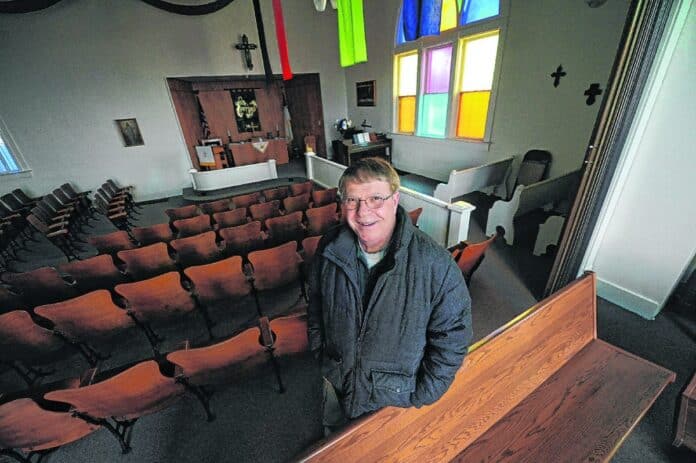Judas probably realized his error as soon as he uttered the words.
He probably wished he could turn back time — maybe just a moment or two — and not speak the words that garnered Jesus’ wrath.
We are quick to side with Jesus, because we know the rest of the story. If we didn’t, we might be wondering if Judas was right. Why should expensive perfume be poured on another’s feet?
If we didn’t know the rest of the story, we too would be outraged and think there could be a better use of resources. We might wonder why Jesus responded as he did. That part about always having poor people but not always having him? We, like the other disciples, would wonder what he meant.
While we listen to the conversations around us and enjoy the rich delicacies of food, we notice the movement of a woman. We catch her in the corner of our eye. She has something in her hand. It is a jar, but of what? Oil for the food? More wine or water for a thirsty guest?
That’s when we notice the aroma of perfume. This is the bouquet of a queen, not peasants. Who could afford this? Who would pour out such an excessive amount to fill the whole house with its scent?
That’s when we notice Mary sitting at the feet of Jesus. Her face shows signs of sorrow and peace. She is troubled, but a restful tranquility is upon her.
All conversation stops. The clattering of plates ceases. Everybody is watching and wondering what Jesus will do. Will he allow her to continue?
With her hair, she created a personal bond with her Lord but exposed herself to ridicule and condemnation. Unbound hair was a mark of an immoral woman, a public disgrace, but Mary did not care about public opinion. She let down her hair and acknowledged her own sinfulness before the only man who could offer her unqualified grace and forgiveness.
We can only love the way we are called to love, in the way that Mary loved. Throw away your rulebooks, your measuring sticks, and love each person as fully as you possibly can.
As you do, trust in the righteousness of Christ, in the saving grace of Jesus, to make it all come out right in the end. For as long as we cling to the notion that how the world ends up is entirely up to us, or that salvation comes because of what we do or others do, we will be worried about our actions and our resources and our abilities, and we will end up falling short of doing all we are able to do.
But when we forget these things, when we stop counting costs and considering consequences, and only look to the love that God has for us, and to the incredible record of faithfulness, we too will be free to love as extravagantly, as completely, as humbly as Mary did.
Sacrificial love — love at any price — is the kind we are called to. It is the kind of love Jesus showed us when he, on the day after Mary anointed his feet, rode into Jerusalem. He would give himself up to death on a cross so that we, as undeserving as we are, might live forever with him and the Father above.
Love at any price is the love we are called to give. Mary didn’t calculate costs.
And, friends, God has shown us that He too is willing to show love at any price. No greater love than the love that seeks out the lost. No greater love than the love that is willing to forgive our sins. No greater love has the world ever known. For God so loved the world he gave his only begotten son.
The Rev. Dave Wise is pastor of Otterbein United Methodist Church. This weekly column is written by local clergy members.



